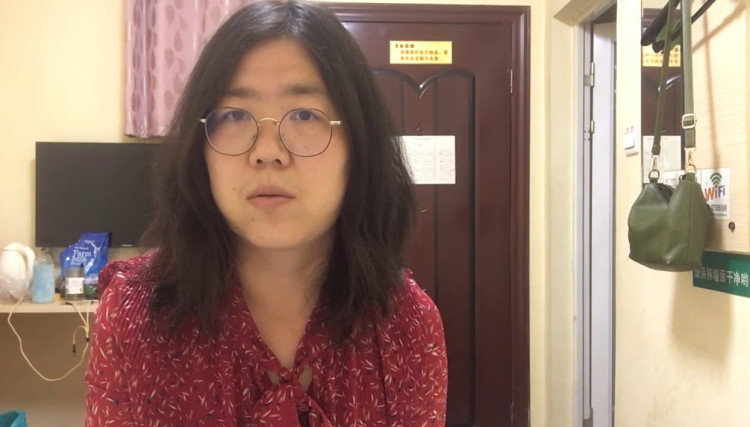Chinese citizen journalist Zhang Zhan, who was jailed for four years after documenting the early stages of the coronavirus outbreak in Wuhan, is due to be released on Monday after serving her sentence. Zhang, 40, had traveled to Wuhan in early 2020 from Shanghai, posting first-hand accounts from crowded hospitals and empty streets that painted a more dire picture of the pandemic than the official narrative.
Zhang was detained in May 2020 and later convicted by a Shanghai court of "picking quarrels and provoking trouble," a charge commonly used by the Chinese government to target dissidents and human rights activists. During her imprisonment, Zhang went on a hunger strike, prompting authorities to strap her hands and force-feed her with a tube, according to her lawyers.
While an indictment for Zhang's case indicated she would be released on Monday, one of her lawyers, Zhang Keke, told Reuters that he couldn't yet confirm whether she had been released. China's Foreign Ministry spokesman, Wang Wenbin, declined to provide any information on the matter, stating that China is a country governed by the rule of law and that anyone who violates the law should be punished accordingly.
Supporters and rights groups have expressed concern over Zhang's freedom and health upon her release. Jane Wang, a UK-based advocate for Zhang's release, said that Zhang's family had been put under enormous pressure from authorities and warned not to engage with the media. "Even after their release from prison, they are still deprived of their basic rights," Wang told Reuters.
Zhang's health has reportedly deteriorated significantly while in prison, with rights groups stating that she was admitted to a prison hospital in mid-2023. The U.S. State Department condemned Zhang's "sham prosecution" and repeatedly called for her release.
Despite the Chinese government's claims of transparency and denial of cracking down on journalists during the pandemic, Zhang was one of several independent reporters who were detained or disappeared as authorities tightened censorship on media coverage.
Yaqiu Wang, research director for China at advocacy group Freedom House, said that even if Zhang walks out of prison, she may not be truly free. "If the Chinese government's past record is of any indication, she will face continued harassment and surveillance by authorities," Wang said.
Sarah Brooks, Amnesty International's China director, expressed concern over Zhang's ability to travel or make contact with relatives and others, especially those outside China, upon her release. "Zhang Zhan should never have been jailed in the first place; now, having served her time, our hopes are with her and her family for a safe reunion and road back to health and, if she chooses, her important human rights work," Brooks said.
China is the world's biggest jailer of journalists, according to Reporters Without Borders, ranking 172 out of 180 countries in its annual Press Freedom Index. The Chinese government tightly controls the press at home while blocking most foreign media outlets via the Great Firewall, its vast online censorship and surveillance apparatus.






